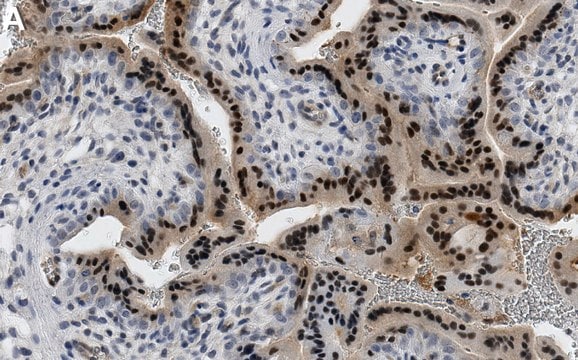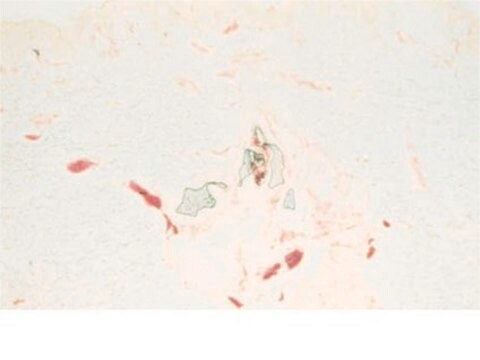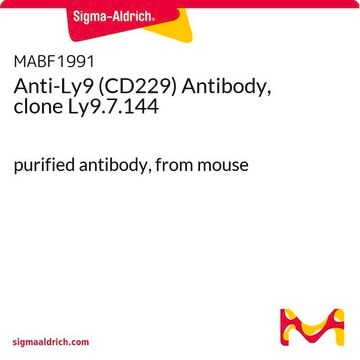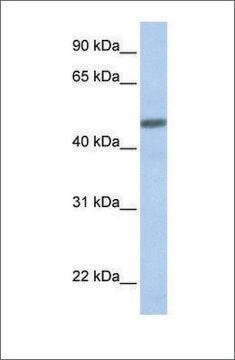05-591-AF647
Anti-Akt/PKB Antibody, PH Domain, clone SKB1, Alexa Fluor™ 647
clone SKB1, from mouse, ALEXA FLUOR™ 647
Sinónimos:
RAC-alpha serine/threonine-protein kinase, PKB, PKB alpha, Protein kinase B, Protein kinase B alpha, Proto-oncogene c-Akt, RAC-PK-alpha
About This Item
Productos recomendados
biological source
mouse
Quality Level
conjugate
ALEXA FLUOR™ 647
antibody form
purified antibody
antibody product type
primary antibodies
clone
SKB1, monoclonal
species reactivity
human, mouse, rat
technique(s)
immunocytochemistry: suitable
isotype
IgG
NCBI accession no.
UniProt accession no.
target post-translational modification
unmodified
Gene Information
mouse ... Akt1(11651)
General description
Specificity
Immunogen
Application
The unconjugated antibody (Cat. No. 05-591) is shown to be suitable also for flow cytometry, immunocytochemistry, immunoprecipitation, and Western blotting applications.
Apoptosis & Cancer
Kinases & Phosphatases
Quality
Immunocytochemistry Analysis: A 1:100 dilution of this antibody detected Akt/PKB in HeLa cells.
Target description
Physical form
Storage and Stability
Other Notes
Legal Information
Disclaimer
¿No encuentra el producto adecuado?
Pruebe nuestro Herramienta de selección de productos.
Storage Class
12 - Non Combustible Liquids
wgk_germany
WGK 2
flash_point_f
Not applicable
flash_point_c
Not applicable
Certificados de análisis (COA)
Busque Certificados de análisis (COA) introduciendo el número de lote del producto. Los números de lote se encuentran en la etiqueta del producto después de las palabras «Lot» o «Batch»
¿Ya tiene este producto?
Encuentre la documentación para los productos que ha comprado recientemente en la Biblioteca de documentos.
Nuestro equipo de científicos tiene experiencia en todas las áreas de investigación: Ciencias de la vida, Ciencia de los materiales, Síntesis química, Cromatografía, Analítica y muchas otras.
Póngase en contacto con el Servicio técnico








